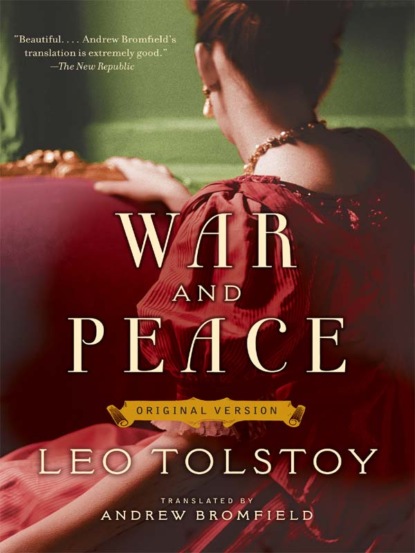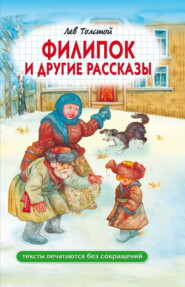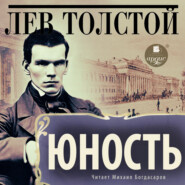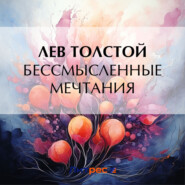По всем вопросам обращайтесь на: info@litportal.ru
(©) 2003-2025.
✖
War and Peace: Original Version
Автор
Год написания книги
2019
Настройки чтения
Размер шрифта
Высота строк
Поля
“It’s excellent,” she said, addressing him with as much enthusiasm as if she were praising somebody else’s voice. Pierre, pleased to have seen how she spoke, went over to Boris, whom he liked almost as much today as Natasha.
“What a lovely child, that little black-haired girl,” he said. “Even though she isn’t good-looking.”
After the boredom of isolation in his father’s big house, Pierre found himself in that happy, young man’s state of loving everyone and seeing nothing but good in everyone. At dinner he had still unwittingly despised the Moscow public from the elevated height of St. Petersburg. But now he already felt that only here in Moscow did people know how to live and he even thought how good it would be to visit this house every day, and listen to this little black-haired girl sing and talk, and look at her.
“Nikolai,” said Natasha, going up to the clavichord, “what shall we sing?”
“Perhaps ‘The Spring’,” replied Nikolai. He was clearly beginning to find it impossible to put up with the importunate Julie, who thought he ought to be overjoyed at her attentions.
“Well come on, come on, Boris, come over here,” Natasha called. “And where’s Sonya?” She glanced around and, seeing that her friend was not in the room, ran to get her.
“The Spring”, as it was known at the Rostovs, was an old four-part song which they had been taught by their music teacher, Dimmler. This “Spring” was usually sung by Natasha, Sonya, Nikolai and Boris, who, although he did not have any special talent or voice, had a good ear and with his characteristic exactitude and imperturbability could learn a part and hold his own. While Natasha was gone, they started asking Nikolai to sing something. He refused in a manner that was almost uncivil and morose. Julie Akhrosimova, smiling, went up to him:
“Why so gloomy, all of a sudden?” she asked. “Though I do understand. For music, and for singing especially, you have to be in the mood. It’s the same for me. There are certain moments …”
Nikolai frowned and walked towards the clavichord. Before he sat down he noticed that Sonya was not in the room and he almost wanted to leave.
“Nikolai, don’t make me beg you, it’s absurd,” said the countess.
“I’m not trying to make you beg, maman,” Nikolai replied and he opened the clavichord, banging the lid with an abrupt movement, and sat down.
He thought for a moment and began a little song by Kavelin:
Why say that fateful word, “adieu”,
When you are parting from your love,
As if life has abandoned you,
And happiness is gone for ever?
Say rather, “till we meet again”,
Say, “till our joy returns anew”.
Dismiss time with this sweet refrain,
To your own love remaining true.
His voice was neither good nor bad, and he sang indolently, as though fulfilling a tedious obligation, but despite that, the entire room fell silent, the young ladies swayed their heads and sighed, and Pierre concealed his teeth behind a gentle, faint smile that looked especially funny on his fat, full-blooded face, remaining like that until the end of the song.
Julie closed her eyes and sighed so loudly that the entire room could hear her.
Nikolai sang with the sense of measure that he so badly lacked in life and which in art cannot be acquired by any study. He sang with a lightness and freedom which demonstrated that he was not labouring, but singing just as he spoke. Only when he began to sing did he express himself not like the child he seemed to be in life, but like a man in whom passions were already stirring.
XXVI
Meanwhile Natasha, running first into Sonya’s room and not finding her there, ran through into the nursery, but she was not there either. Natasha realised Sonya was on the chest in the corridor. The chest in the corridor was the “vale of sorrows” for the younger female generation in the Rostov house. And there indeed was Sonya lying on the trunk, face down on nanny’s grubby striped eiderdown, with her gossamer-fine pink frock all crumpled beneath her, sobbing into her hands so violently that her bare, brown little shoulders were shuddering. Natasha’s face, festive and animated all day long and now even more brightly radiant in preparation for singing, which always made her excited, suddenly darkened. Her eyes grew still, then her sturdy neck, well formed for singing, began to quiver, the corners of her lips turned down and in an instant her eyes were wet with tears.
“Sonya! What is it? What’s wrong? Oh-oh-oh!” And Natasha, opening her large mouth and making herself utterly ugly, began bawling like a child without knowing the reason why, just because Sonya was crying. Sonya wanted to lift her head up, she wanted to answer, but she could not and only hid herself away all the more. Still crying, Natasha sat down on the blue eiderdown and hugged her friend. Gathering all her strength, Sonya sat up and began wiping away the tears and telling her what was wrong.
“Nikolai is leaving in a week, his … papers … have been issued … he told me himself … But I still wouldn’t have cried …” (she showed Natasha the piece of paper that she was holding in her hand: it was the poem written by Nikolai), “I still wouldn’t have cried, but you can’t … nobody can understand … what a fine soul he has …”
And she began crying again because his soul was so fine. Sonya felt that no one apart from her could understand the sublime loveliness, nobility and tenderness – all the finest virtues of this soul. And she really did see all these peerless virtues, firstly because Nikolai, without knowing it himself, showed her only his very best side, and secondly because she wished with all the strength of her heart to see only the beautiful things in him.
“You are lucky … I don’t envy you … I love you, and Boris too,” she said, recovering a little strength, “he is kind. For you there are no obstacles. But Nikolai is my cousin … we need to … the Metropolitan himself … even then it’s impossible … And then, if mama” (Sonya thought of the countess as her mother and called her mama) “… she’ll say that I’m ruining Nikolai’s career, that I’m heartless and I’m ungrateful, but truly … so God help me” (she crossed herself) “… I love her so much, and all of you, only Vera … But why? What have I done to her? I’m so grateful to you all that I would sacrifice everything, but I don’t have a thing …”
Sonya could not carry on and again she hid her face in her hands and the eiderdown. Natasha began trying to comfort her, but it was clear from her face that she understood the full significance of her friend’s grief.
“Sonya!” she said suddenly, as if she had guessed the genuine cause of her cousin’s distress. “Tell me, Vera said something to you after dinner, didn’t she?”
“Yes, Nikolai wrote out this poem himself, and I copied out some others: she found them on my table and said she would show them to mama, and she said that I was ungrateful, that mama would never allow him to marry me. And he’s going to marry Julie. You see the way she looks at him. Natasha? What did I do?”
And she started crying again, more bitterly than before. Natasha raised her up, embraced her and, smiling through her own tears, began reassuring her.
“Sonya, don’t believe her, my darling, don’t believe her. Remember how the two of us and Nikolai spoke about things in the divan room, remember, after supper? We decided how everything would be. I don’t remember exactly, but remember how everything was so good and everything was possible. Uncle Shinshin’s brother is married to his cousin, and we’re only second cousins. And Boris says it’s perfectly possible. You know, I told him everything. And he’s so clever and so good,” said Natasha, feeling, just as Sonya did about Nikolai, and for the same reasons, that no one in the world apart from her could know all the treasures that were contained in Boris … “Sonya, don’t you cry, my darling, my sweet Sonya.” And she kissed her, laughing. “Vera’s mean. Forget her. Everything is going to be all right, and she won’t tell mama, Nikolai will tell her himself.”
She kissed the top of Sonya’s head. Sonya sat up, and the little kitten became lively again, her eyes began to sparkle and it seemed as if any moment she would wave her tail, jump down on her soft paws and start playing with a ball of wool just as she ought to.
“Do you think so? Really? Honest to God?” she said, rapidly straightening her dress and putting her hair in order.
“Really, honest to God!” replied Natasha, tidying a vigorous lock of stray hair back into her friend’s plait, and they both laughed.
“Now, let’s go and sing ‘The Spring’.”
“Yes, let’s.”
Sonya, having brushed off the fluff and tucked the poem into her bosom up by her neck and prominent collar bones, her face flushed, ran with Natasha on light, happy feet along the corridor to the drawing room. Nikolai was finishing the final couplet of his song. He saw Sonya, his eyes lit up, a smile appeared on his mouth that was open to sing, his voice became stronger and more expressive, and he sang the final couplet even better than the ones before.
How sweet, bath’d in the moon’s bright ray,
– he sang, looking at Sonya, and they understood how much all this meant – the words and the smile and the song although, strictly speaking, it all meant nothing.
In fancy’s happy mood, to say:
This world still holds one, dear to see,
Whose thought and dreams are all of thee!
And her fair fingers still do stray
Across that gentle harp and play,
Sighing sweet passion’s harmony,
With urgent pleas that summon thee.
One day – when bliss will be on hand …

















